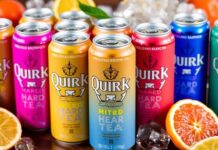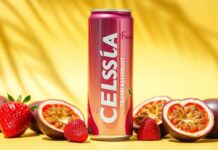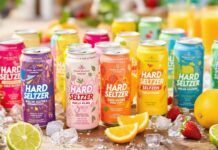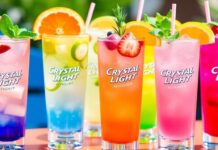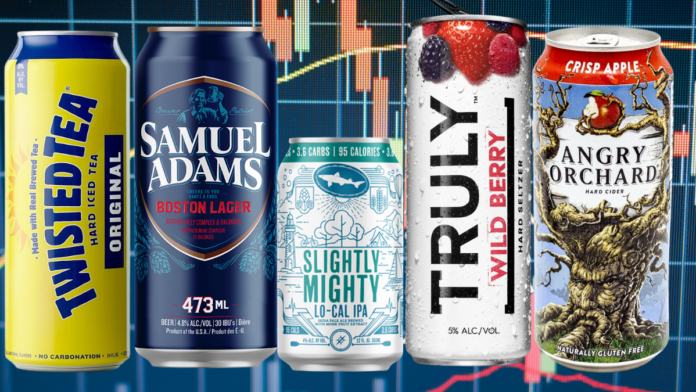The Boston Beer Company (NYSE: SAM) reported its Q2 earnings on Thursday afternoon. The beverage alcohol company’s shares plummeted 20% in after hours trading Thursday, with its top and bottom line falling short of analysts’ expectations. CEO Dave Burwick acknowledged that Truly hard seltzer missed their expectations, “we overestimated the growth of the hard seltzer category.”
Boston Beer, the maker of Truly Hard Seltzer, reported profits of $4.75 a share ($59.2 million), well under $6.61, the averaged analyst prediction. A year ago the company reported higher profits of $4.88 a share. Boston Beer also missed revenue expectations in its second quarter. It reported at $602.8 million, a 33.3% increase from last year’s numbers, but still $54.85 million under analysts’ projections. Gross margins decreased slightly from last year’s reported 46.4% down to 45.7% this year.
Three months ago SAM was trading at an all time high of $1,349.48 per share. The brewer reported a profit of $65.6 million at the end of this year’s Q1, more than tripling last year’s first quarter profit of $18.2 million. In April of this year the stock was enjoying record ramp-up in hard seltzer expansion, and Truly geared up to launch Truly Punch, a product that the brand’s vice president, Don Lane, called its “biggest flavor yet.”
Truly has long maintained its #2 spot in the hard seltzer market, consistently coming in behind Mark Anthony Brands’ White Claw. A few short months ago the company announced Truly was growing 122% faster than others in its category.
When Truly and White Claw exploded onto the scene in 2016 the seltzer category was in its infancy. Hard seltzers were just beginning to gain traction and there were far fewer brands available for consumers to choose from. The Boston Beer and Mark Anthony brand seltzers easily dominated the up and coming market.
Fierce Competition Unexpected by Boston Beer Management
Now Boston Beer is experiencing pressure from the category’s expansion by other brands. “We overestimated the growth of the hard seltzer category in the second quarter and the demand for Truly, which negatively impacted our volume and earnings for the quarter and our estimates for the remainder of the year,” Dave Burwick, the company’s CEO, said.
“We increased our production of Truly to meet our summer peak and have had lower-than-anticipated demand for certain Truly brand styles, which has resulted in higher-than-planned inventory levels at our breweries and increased supply-chain costs and complexity.”
Boston Beer leaders have lowered their expectations and are now predicting revised earnings of anywhere from $18 to $22 per share, compared to the previous average estimate of $24.56. The new reality is a blow to the beer company which had, in previous quarters, leaned on Truly’s success to offset poor on-premise performances from its beer brands as a result of quarantine regulations.
In 2021, as the pandemic dust settles and on-premise venues reopen, off-premise seltzer sales have slowed. Consumers are no longer stocking up for quarantine and when they do purchase there is a saturation of “new hard seltzer brands at retail that [result] in a proliferation of choices and consumer confusion,” Jim Koch, Boston Beer’s founder and chairman, explained.
Rapid Product Development
Over the last year Boston Beer has invested heavily in Truly. Coming into 2021 Truly boasted a line of classic hard seltzers featuring an array of fruit flavors as well as a line of lemonade hard seltzers which launched in 2020.
In January the company unveiled Truly Iced Tea Seltzer
in four flavors. In March, just two months before Truly Punch launched, the brand debuted Truly Extra, an imperial seltzer with an ABV of 8%. In June, a limited edition run of alcoholic lemonade freeze pops hit shelves. Earlier this spring the brand even partnered with Grammy Award-Winning Musician Dua Lipa for its No One Is Just One Flavor campaign, its most sizable media investment to-date.
With all of its new products and marketing, the company’s advertising and promotional expenses increased a whopping 61.1%, even though its gross margin decreased. Boston Beer does plan to increase advertising investments, but by $50 million less than it had previously budgeted.
Analysts will be watching Boston Beer and Truly closely in the upcoming months as the company attempts to bounce back from a truly underwhelming Q2 performance.
- Seltzer Category Expanded for 2022 Craft Beer Marketing Awards - February 11, 2022
- Drifter Expands Portfolio with Nordic-Style Gin - January 18, 2022
- Tilray Acquires Green Flash and Alpine Beer - December 22, 2021


